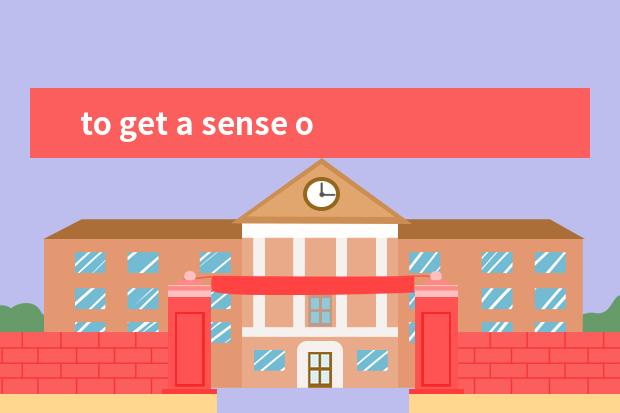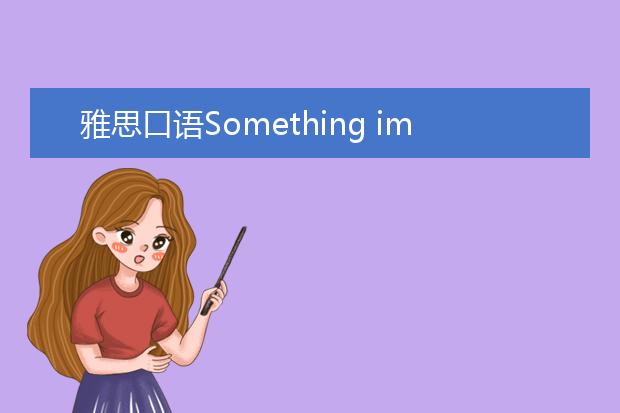当前城市:淄博[切换]
- 手机雅思无忧

扫码登录
雅思考试主要是通过对考生听、说、读、写四个方面英语能力的考核,综合测评考生的英语沟通运用能力,实现“沟通为本”的考试理念。对于雅思考生来说,也有很多考试难点和政策盲区需要帮助解答。今天雅思无忧网小编准备了文章雅思阅读全真练习系列:Selling Digital Music without Copy-protection Makes Sense,希望通过文章来解决雅思考生这方面的疑难问题,敬请关注。
雅思阅读全真练习
本系列的模拟试题在难度、长度、题材、题型方面都与雅思考试近似的练习。这些练习,均以国外报刊上的文章为素材,按雅思阅读的题型,出题并提供答案及简单注释。进行雅思复习的同学可以在网页直接做题或将题目打印练习均可。
Selling Digital Music without Copy-protection Makes Sense
A. It was uncharacteristically low-key for the industry’s greatest showman. But the essay published this week by Steve Jobs, the boss of Apple, on his firm’s website under the unassuming title “Thoughts on Music” has nonetheless provoked a vigorous debate about the future of digital music, which Apple dominates with its iPod music-player and iTunes music-store. At issue is “digital rights management” (DRM)—the technology guarding downloaded music against theft. Since there is no common standard for DRM, it also has the side-effect that songs purchased for one type of music-player may not work on another. Apple’s DRM system, called FairPlay, is the most widespread. So it came as a surprise when Mr. Jobs called for DRM for digital music to be abolished.
B. This is a change of tack for Apple. It has come under fire from European regulators who claim that its refusal to license FairPlay to other firms has “locked in” customers. Since music from the iTunes store cannot be played on non-iPod music-players (at least not without a lot of fiddling), any iTunes buyer will be deterred from switching to a device made by a rival firm, such as Sony or Microsoft. When French lawmakers drafted a bill last year compelling Apple to open up FairPlay to rivals, the company warned of “state-sponsored piracy”. Only DRM, it implied, could keep the pirates at bay.
C. This week Mr. Jobs gave another explanation for his former defence of DRM: the record companies made him do it. They would make their music available to the iTunes store only if Apple agreed to protect it using DRM. They can still withdraw their catalogues if the DRM system is compromised. Apple cannot license FairPlay to others, says Mr Jobs, because it would depend on them to produce security fixes promptly. All DRM does is restrict consumer choice and provide a barrier to entry, says Mr Jobs; without it there would be far more stores and players, and far more innovation. So, he suggests, why not do away with DRM and sell music unprotected? “This is clearly the best alternative for consumers,” he declares, “and Apple would embrace it in a heartbeat.”
D. Why the sudden change of heart? Mr Jobs seems chiefly concerned with getting Europe’s regulators off his back. Rather than complaining to Apple about its use of DRM, he suggests, “those unhappy with the current situation should redirect their energies towards persuading the music companies to sell their music DRM-free.” Two and a half of the four big record companies, he helpfully points out, are European-owned. Mr Jobs also hopes to paint himself as a consumer champion. Apple resents accusations that it has become the Microsoft of digital music.
E. Apple can afford to embrace open competition in music players and online stores. Consumers would gravitate to the best player and the best store, and at the moment that still means Apple’s. Mr Jobs is evidently unfazed by rivals to the iPod. Since only 3% of the music in a typical iTunes library is protected, most of it can already be used on other players today, he notes. (And even the protected tracks can be burned onto a CD and then re-ripped.) So Apple’s dominance evidently depends far more on branding and ease of use than DRM-related “lock in”.
F. The music giants are trying DRM-free downloads. Lots of *aller labels already sell music that way. Having seen which way the wind is blowing, Mr Jobs now wants to be seen not as DRM’s defender, but as a consumer champion who helped in its downfall. Wouldn’t it lead to a surge in piracy? No, because most music is still sold unprotected on CDs, people wishing to steal music already can do so. Indeed, scrapping DRM would probably increase online-music sales by reducing confusion and incompatibility. With the leading online store, Apple would benefit most. Mr Jobs’s argument, in short, is transparently self-serving. It also happens to be right.
Questions 1-7 Do the following statemets reflect the claims of the writer in Reading Passage 1?
Write your answer in Boxes 1-7 on your answer sheet.
TRUE if the statement reflets the claims of the writer
FALSE if the statement contradicts the claims of the writer
NOT GIVEN if it is impos*ile to say what the writer thinks about this
1. Apple enjoys a controlling position in digital music market with its iPod music-player and iTunes music-store.
2. DRM is a government decree issued with a purpose to protect downloaded music from theft by consumers.
3. Lack of standardization in DRM makes songs bought for one kind of music player may not function on another.
4. Apple has been criticized by European regulators since it has refused to grant a license FairPlay to other firms.
5. All music can be easily played on non-iPod music devices from Sony or Microsoft without too much fiddling.
6. Apple depends far more on DRM rather than branding for its dominance of the digital music devices.
7. If DRM was cancelled, Sony would certainly dominate the international digital music market.
Questions 8-10 Choose the appropriate letters A-D and write them in boxes 8-10 on your answe sheet.
8. Which of the following statements about Mr. Jobs’ idea of DRM is NOT TRUE?
A. DRM places restrictions on consumer’ choice of digital music products available.
B. DRM comples iTunes buyers to switch to a device made by Sony or Microsoft.
C. DRM constitutes a barrier for potential consumers to enter digital music markets.
D. DRM hinders development of more stores and players and technical innovation.
9. The word “unfazed” in line 3 of paragraph E, means___________.
A. refused
B. welcomed
C. not bothered
D. not well received
10. Which of the following statements is TRUE if DRM was scapped?
A. Sony would gain the most profit.
B. More customers would be “locked in”.
C. A sudden increase in piracy would occur.
D. Online-music sales would probably decrease.
Questions 11-14 Complete the notes below.
Choose NO MORE THAN THREE WORDS from Reading Passage 1 for each answer.
Write your answers in boxes 11-14 on your answer sheet.
Mr. Steve Jobs, the boss of Apple, explains the reason why he used to defend DRM, saying that the company was forced to do so: the record companies would make their music accessible to …11...only if they agreed to protect it using DRM; they can still…12…if the DRM system is compromised. He also provides the reason why Apple did not license FairPlay to others: the company relies on them to …13….But now he changes his mind with a possible expectation that Europe’s regulators would not trouble him any more in the future. He proposes that those who are unsatisfactory with the current situation in digital music market should …14… towards persuade the music companies to sell their music DRM-free.
以上就是雅思无忧网为您准备的访问雅思无忧网(https://www.yasi.cn/),了解更多雅思考试新消息,新动态。
 雅思阅读全真练习系列:Selling Digital Music without Copy-pro
雅思阅读全真练习系列:Selling Digital Music without Copy-pro
雅思考试主要是通过对考生听、说、读、写四个方面英语能力的考核,综合测评考生的英语沟通运用能力,实现“
2023年01月11日 02:21 雅思阅读练习:Selling Digital Music
雅思阅读练习:Selling Digital Music
雅思考试主要是通过对考生听、说、读、写四个方面英语能力的考核,综合测评考生的英语沟通运用能力,实现“
2023年03月05日 08:00 雅思要求系列——盘点“港八大” 雅思多少分可以申请!
雅思要求系列——盘点“港八大” 雅思多少分可以申请!
雅思6.5能不能申请港中文硕士雅思6.5可以申请港中文硕士。但需要注意以下几点:最低分数要求:香港中
2026年01月28日 14:32 2021年1-4月 雅思口语 Part 2 Topic 46 搞笑电影 Describe a film/movie that makes you laugh
2021年1-4月 雅思口语 Part 2 Topic 46 搞笑电影 Describe a film/movie that makes you laugh
Describe a film / movie that makes you laugh You s
2021年11月12日 08:51 to get a sense of how women 进行句子解析 海北雅思阅读真题及解析 请帮忙讲解一下雅思阅读中的句子语法结构?
to get a sense of how women 进行句子解析 海北雅思阅读真题及解析 请帮忙讲解一下雅思阅读中的句子语法结构?
togetasenseofhowwomen进行句子解析ogetasenseofhowwomenhav
2023年11月22日 12:25 雅思大作文:printed books are no longer needed in a digital era
雅思大作文:printed books are no longer needed in a digital era
2020年雅思报考指南 雅思大作文题目:Some
2021年10月08日 17:23 雅思听力填空题中common sense的应用
雅思听力填空题中common sense的应用
填空题是雅思听力的主要题型,如何有效利用已知信息做出合理推测,值得深入探究。环球教育听力老师希望通过
2021年11月16日 17:07 快速提高雅思听力单选题:Common Sense的应用
快速提高雅思听力单选题:Common Sense的应用
雅思听力中的单选题看似简单,不管做出什么选择,至少都有33%的正确率。但实际上选择题往往处处是陷阱,
2021年11月16日 22:12 雅思口语Something important that you can't live without
雅思口语Something important that you can't live without
为各位雅思考生带来Something important that you can't live w
2021年11月27日 16:44 雅思口语话题something you can not live without
雅思口语话题something you can not live without
今天为各位雅思考生带来话题describe something you can not live w
2021年11月27日 16:49